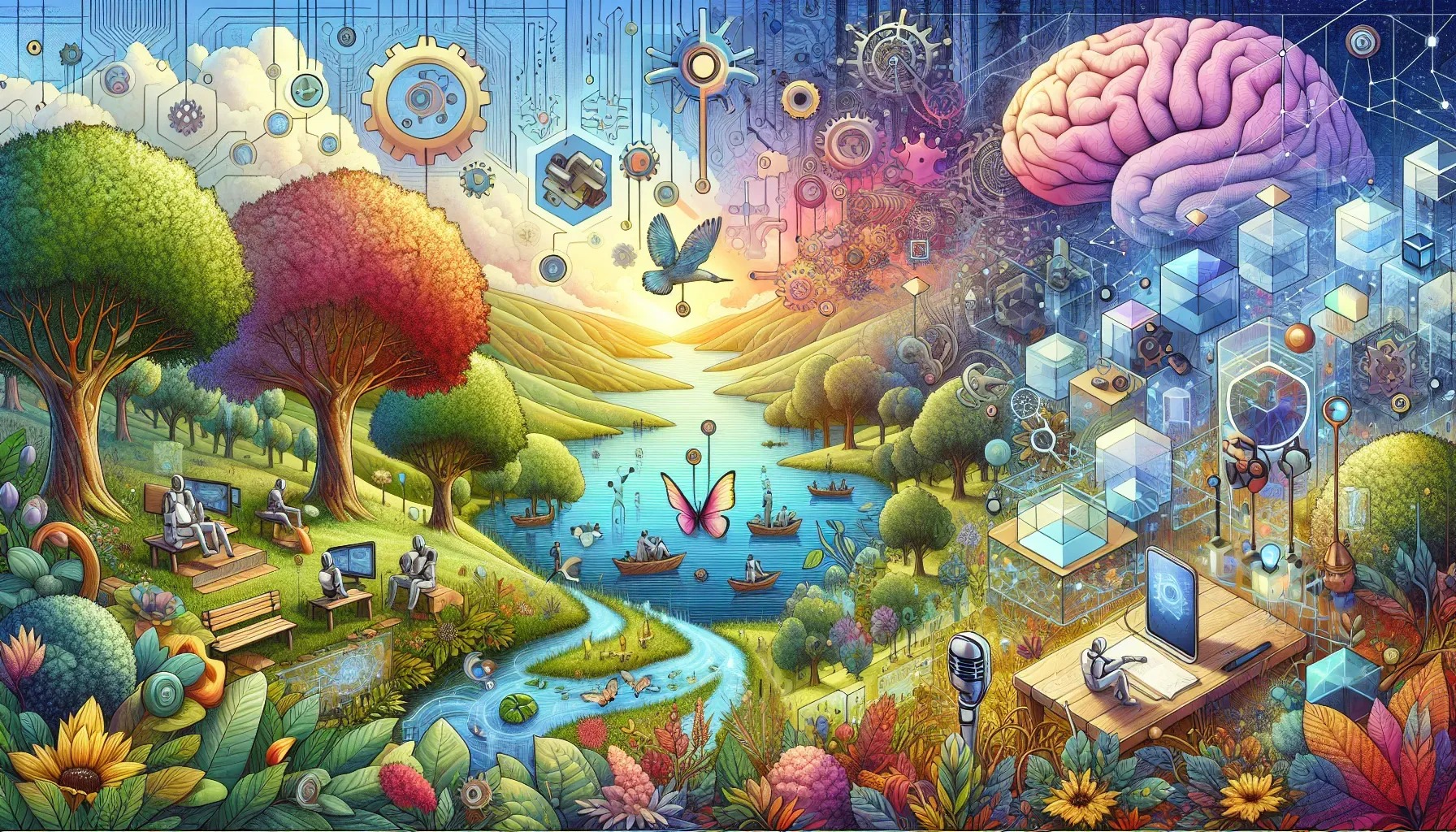The Disruptors’ Playbook: When Tech Innovators Rewrite Marketing Rules

Introduction to Tech Innovators in Marketing
In the fast-paced world of digital marketing, where trends evolve at breakneck speed and consumer behaviors shift rapidly, tech innovators are rewriting the rules of engagement. From leveraging cutting-edge tools to redefining real-time interaction and blurring the lines between virtual and reality, these disruptors are reshaping the marketing landscape. In this article, we delve into the groundbreaking strategies and technologies that are propelling digital marketing into the future.
Tech titans have unleashed a new era of marketing by harnessing cutting-edge tools that empower marketers to connect with their audience in unprecedented ways. Artificial Intelligence (AI) and machine learning have emerged as game-changers, enabling hyper-personalized marketing campaigns and predictive analytics that anticipate consumer needs. By utilizing these technologies, marketers can analyze vast amounts of data, identify patterns, and deliver content that resonates deeply with individual consumers.
Cutting-Edge Tools Transforming Marketing Strategies
Real-time interaction has become a cornerstone of digital marketing, with AI and machine learning driving dynamic customer engagement. These technologies enable marketers to tailor content in real time based on individual preferences, browsing behavior, and demographic data, creating personalized experiences that resonate with consumers on a deeper level. For example, AI-powered chatbots can provide instant customer support, while machine learning algorithms can recommend products based on past purchases and browsing history.
Related Article: Video Streaming Platforms and Interactive Advertising Agencies Join Forces: Redefining Brand Engagement Stories
AI and Machine Learning: Revolutionizing Real-Time Interaction
Augmented Reality (AR) is transcending traditional marketing boundaries by seamlessly blending virtual elements with the real world. Marketers are leveraging AR to create immersive brand experiences, allowing consumers to interact with products in a virtual space before making purchasing decisions. This not only enhances the shopping experience but also provides a unique way for brands to showcase their products. For instance, furniture retailers use AR to let customers visualize how a piece of furniture would look in their home.
The Role of Augmented Reality in Marketing
Blockchain technology has emerged as a catalyst for transparency and trust in digital marketing. By leveraging decentralized ledgers, marketers can ensure the integrity of data, track provenance, and enhance security in advertising and consumer interactions. Blockchain can be used to verify the authenticity of advertisements, ensure that ad spend is properly allocated, and protect consumer data from tampering. This level of transparency fosters trust between brands and consumers, which is crucial in an era where data privacy concerns are paramount.
The rise of voice search has compelled marketers to adapt their strategies for a conversational future. Optimizing content for voice search entails understanding natural language patterns and tailoring SEO strategies to align with how users articulate queries verbally. This involves using long-tail keywords and natural language phrases that mimic everyday speech. Brands that effectively optimize for voice search can improve their visibility in search engine results and better meet the needs of consumers who prefer using voice commands.
Related Article: Bio-Neurotargeting: The Convergence of Biology and Neuromarketing Revolutionizing Ads
Enhancing Trust with Blockchain Technology
Gamification has emerged as a powerful tool for fostering meaningful connections between brands and consumers. By integrating game mechanics into marketing initiatives, brands can incentivize engagement, drive brand loyalty, and create memorable interactive experiences. For example, loyalty programs that reward customers with points or badges for making purchases or participating in brand activities can enhance customer retention. Gamified experiences not only make marketing more fun but also encourage consumers to interact with brands in new and exciting ways.
Voice Search Optimization for Future Readiness
Virtual Reality (VR) is revolutionizing the advertising landscape by offering immersive experiences that transport consumers into meticulously crafted virtual environments. By creating VR showrooms and immersive ads, brands can immerse audiences in captivating narratives that leave a lasting impression. These virtual experiences allow consumers to explore products and services in a highly engaging manner, making them feel as though they are part of the story. This can lead to higher levels of engagement and a stronger emotional connection with the brand.
Related Article: Holographic Influencer Marketing: Immersive 3D Personas Reshaping Brand Collaborations
Gamification: Building Deeper Connections with Consumers
As digital marketing continues to evolve, the integration of advanced technologies like AI, AR, blockchain, and VR will play an increasingly important role in shaping the future of the industry. By staying ahead of these trends and leveraging these innovative tools, marketers can create more personalized, engaging, and trustworthy experiences for their audiences. The key to success in this rapidly changing landscape lies in the ability to adapt and innovate, using technology to forge deeper connections with consumers and drive meaningful results.
Frequently Asked Questions
AI significantly enhances digital marketing by enabling hyper-personalized campaigns and predictive analytics. Marketers can analyze large data sets to identify consumer patterns, allowing them to deliver tailored content that meets individual needs and preferences, ultimately improving engagement and conversion rates.
Augmented Reality (AR) is transforming consumer experiences by merging virtual elements with the real world. It allows consumers to interact with products in a virtual space, enhancing their shopping experience and enabling them to visualize items, such as furniture, in their own environments before purchasing.
Blockchain technology fosters transparency and trust in digital marketing by ensuring data integrity and security. It allows marketers to verify ad authenticity, track spending accurately, and protect consumer data from tampering, which is essential in an era of increasing data privacy concerns.
Check Out These Related Articles

AI-Powered Email Marketing Platforms and Behavioral Analysis Experts Drive Personalization to New Heights

Boundary-Pushing Innovations: Redefining Digital Health and Wellness Marketing

Accessible Innovation: Pioneering Solutions for Universal Interaction in Digital Marketing

